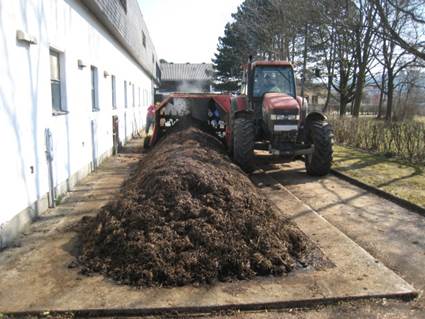Severe worm infestations occur in companies that present fresh green fodder to the animals in the stable. The stable manure is usually mucked out and stored temporarily every two to three months. It is then spread on meadows in autumn. This corresponds to the circular economy required in organic farming. In addition to supplying nutrients, the stable manure stabilizes the soil structure, loosens the soil and thus improves root penetration. This has a positive effect on turf and biodiversity. In addition to these positive effects on the soil and sward, there can also be negative effects on animal health because parasite stages that survive in the temporarily stored manure are spread on forage meadows and get back into the animal when the food is advertised. The development cycle of the parasites is therefore closed.
This project investigates what effects three different composting methods have on the content of parasite stages in manure/compost and whether composting can interrupt the development cycle of most gastrointestinal worms.

Tractor turning compost
HBLFA Raumberg-Gumpenstein





